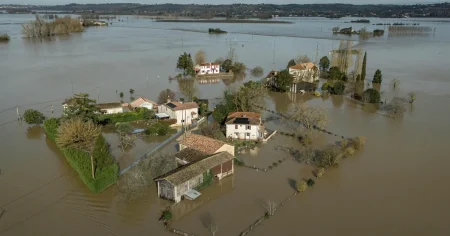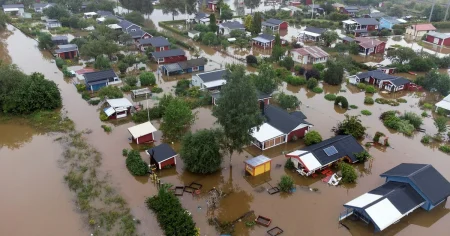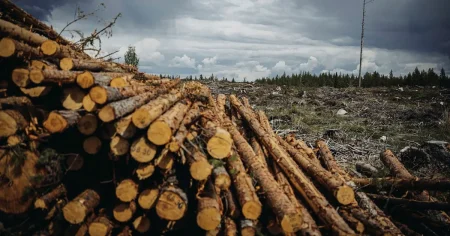The debate surrounding Sweden’s forest management policies has intensified, with Climate and Environment Minister Romina Pourmokhtari of the Liberal Party (L) arguing that the carbon sequestration capacity of forests is significantly influenced by natural processes, rendering current governmental prognoses unreliable. Pourmokhtari contends that factors like natural disturbances, such as forest fires and insect infestations, as well as variations in growth rates due to climate fluctuations, introduce substantial uncertainty into predictions of future carbon storage. This perspective underscores the complexity of forest ecosystems and the limitations of current models in accurately capturing the intricate interplay of these natural variables. The minister’s assertions raise questions about the efficacy of relying solely on projected carbon sequestration figures for policy formulation and emphasize the need for a more nuanced approach to forest management.
In contrast, the opposition, led by Social Democrat Anna-Caren Sätherberg (S), accuses the government of irresponsible policy decisions. Sätherberg argues that the government’s emphasis on natural variability in carbon sequestration is a veiled attempt to downplay the impact of human activities, such as increased logging, on the forests’ ability to store carbon. She criticizes the government for what she perceives as a lack of commitment to aggressive climate action and accuses them of ”taking a running bill” or shirking their responsibility to mitigate climate change. This accusation suggests that the government is prioritizing short-term economic gains from logging over the long-term benefits of maintaining robust carbon sinks and preserving biodiversity within forest ecosystems. The opposition’s stance underscores the inherent tension between economic interests and environmental protection in the context of forest management.
The core of this disagreement revolves around the interpretation and application of scientific data regarding forest carbon dynamics. Pourmokhtari’s emphasis on natural variability suggests a more cautious approach to setting ambitious carbon sequestration targets, potentially advocating for a more adaptive management strategy that accounts for unpredictable environmental fluctuations. This approach might involve prioritizing forest resilience and biodiversity over maximizing carbon storage, potentially through measures like promoting diverse tree species and reducing the intensity of logging operations. The minister’s position reflects a recognition of the inherent complexities of forest ecosystems and the inherent limitations of predictive models.
Conversely, the opposition’s view reflects a greater emphasis on the urgency of climate action and the importance of maximizing carbon sequestration in forests. Sätherberg’s criticism implies a preference for stricter regulations on logging practices and a stronger focus on preserving existing forest cover to maximize carbon storage potential. This perspective emphasizes the vital role of forests in mitigating climate change and advocates for prioritizing carbon sequestration as a primary objective of forest management. This approach potentially aligns with international climate agreements and commitments to reduce greenhouse gas emissions.
The debate also highlights the broader political and economic context surrounding Swedish forest management. Sweden has a long history of forestry as a significant economic sector, and balancing the economic interests of the industry with environmental concerns poses a complex challenge. The government’s position may be interpreted as an attempt to navigate this delicate balance, seeking to maintain the economic viability of the forestry sector while acknowledging the importance of sustainable forest management. The opposition, however, views this approach as insufficient, arguing that the urgency of the climate crisis demands prioritizing environmental protection over short-term economic gains.
Ultimately, the disagreement between the government and the opposition reflects differing perspectives on the role of forests in climate change mitigation and the appropriate balance between economic activity and environmental protection. The debate underscores the complex interplay of scientific understanding, political priorities, and economic interests in shaping forest management policies. Resolving this debate requires a comprehensive approach that integrates scientific data, economic considerations, and societal values to develop sustainable and effective forest management strategies that address both the climate crisis and the economic needs of the nation. This necessitates open dialogue, transparent communication, and a willingness to engage in constructive compromise to find solutions that benefit both the environment and the economy.














